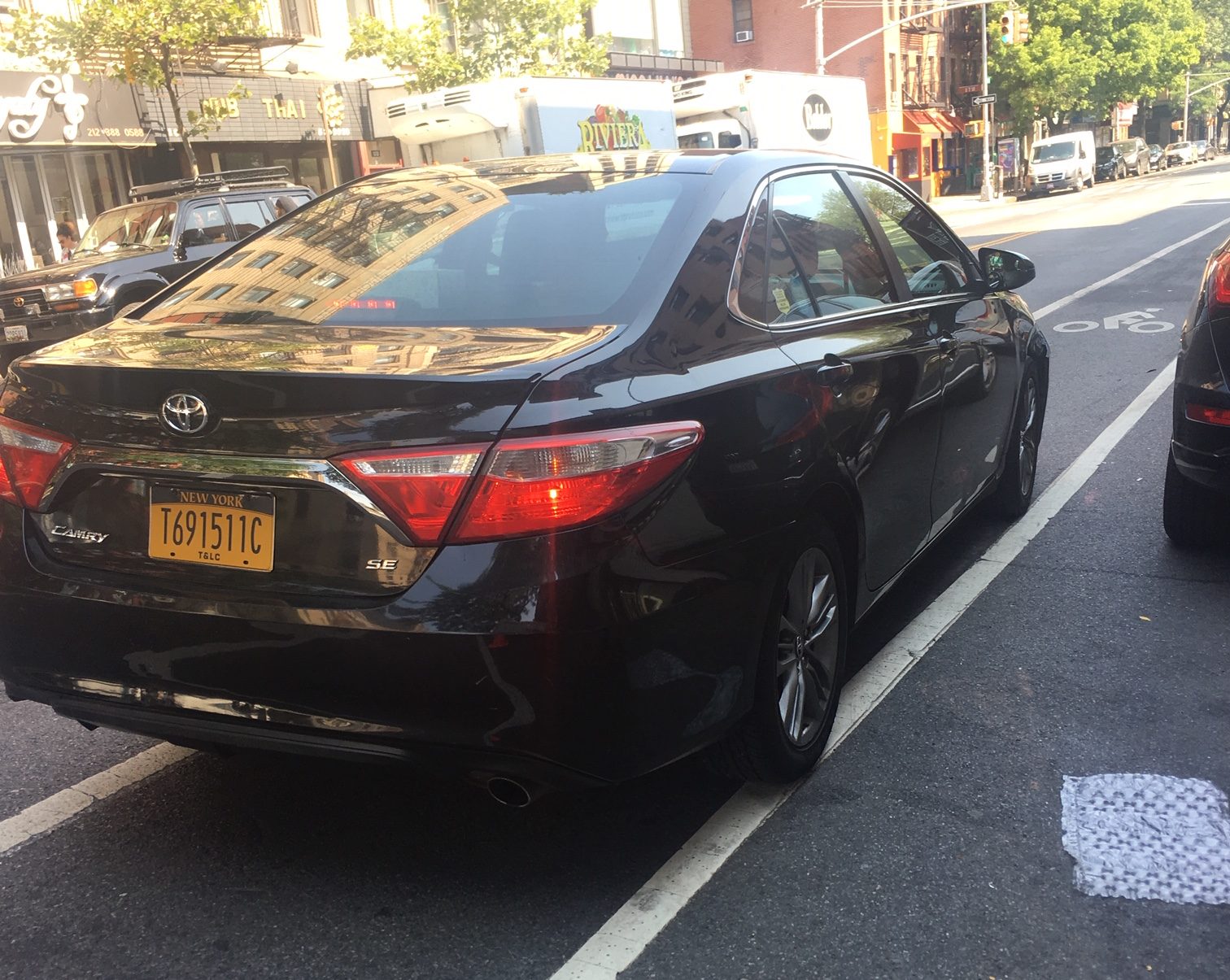Uber operators are by far the worst offenders among New York City taxi services when it comes to such dangerous and illegal behavior as blocking bike lanes and crosswalks, failing to yield to pedestrians, running a red light or stop sign, or parking on a sidewalk.
That’s the take-away from new statistics from Reported, a smartphone app that lets citizens hold drivers accountable for their lawbreaking behavior.
Yet the sheer number of offending Uber drivers presents the company with a unique opportunity: An Uber campaign to educate drivers on traffic law and best driving practices could have an outsized positive effect on street safety in New York City.
So, let’s have it, Uber!
How do we know Uber is the worst? Reported, which I launched in 2016, enables citizens to snap photos and report vehicles blocking a bike lane or crosswalk. Reported then submits these complaints, on the user’s behalf, to the city’s 311 system, where they end up at the Taxi and Limousine Commission (for TLC-licensed vehicles blocking bike lanes or crosswalks) and/or a police precinct (for vehicles blocking bike lanes). At the end of the year, our app enables us to compile a record of the number and kinds of complaints. It’s a powerful, citizen-operated tool for driver accountability.
In 2019, citizens submitted 17,700 complaints via Reported — nearly four times the submissions in 2018. Uber vehicles made up a whopping 60 percent of the 7,730 complaints to the Taxi and Limousine Commission lodged last year through our app. Of those TLC complaints, fully 6,467 were for blocked bike lanes or crosswalks. The rest were for illegal parking, running red lights, failure to yield, driving aggressively and/or speeding and honking. (Some complaints led to multiple charges.)
What could Uber do to address the behavior of drivers? To stop them from blocking bike lanes, Uber could use the data from the Department of Transportation’s bike-lane map to notify drivers in-app where they may and may not pick up and drop off passengers — and to forcefully tell drivers not to pick up or drop off in bike lanes.
The location data now available through cell phones could help ride-share companies police their drivers’ behavior. The scooter company Lime, for example, now can detect when a person is riding one of its scooters on a sidewalk (which is illegal), through vibration data collected from phones. Similarly, ride-share companies like Uber could combine driver GPS with DOT bike maps or Open Street Maps data in order to detect when drivers are stopped in bike lanes — and to admonish them to move.
Uber also could leverage satellite-enabled location data to monitor when a driver is exceeding the city’s 25 mph speed limit. (Uber Movement already provides average speed data, so it follows that the company monitors driver speeds.) According to Reported and city data (the same data that powers Howsmydrivingny.nyc), of the Uber drivers reported, a staggering 96 percent had violations for speeding, running red lights, or illegal parking in the last 18 months.
(Uber might argue that it bears no responsibility for its drivers’ behavior because they also drive for other services — so who’s to say that the driver wasn’t working for Lyft or Via while he or she was breaking the law? That’s true, but all for-hire vehicles in the city must register the car’s license plate with a “base” company; it follows that the base should assume the most responsibility for safety.)
But the biggest effect Uber could have would be to work with the DOT to identify prime locations to replace curbside car parking with active loading zones — designated areas where taxis and rideshares can pick up and drop off passengers and commercial trucks can safely make deliveries. Pickup and drop-off data is already available for yellow taxis and has been mapped. Uber could use its data to identify the best locations for conversion to loading zones. That would be a win for cyclists, drivers and passengers.
In two short years, Reported has emerged as a force for vehicle safety in the city — generating almost a third of the 26,532 complaints the TLC received last year and more than half of the 13,865 summonses it issued, according to our estimates (which are based on the Mayor’s Management Report). Fines for blocking the bike lane or blocking the crosswalk (the most common complaints) are $100 to $200. We estimate that our app facilitated about $640,000 in fine revenue for the city last year.
But we are less interested in fining drivers than in prodding them to steer clear of our bike lanes and crosswalks and otherwise to drive safely.
C’mon, Uber, do the right thing and educate your drivers now.
Jeff Novich (@jeffnovich) is a product manager at ClassPass in New York City.







